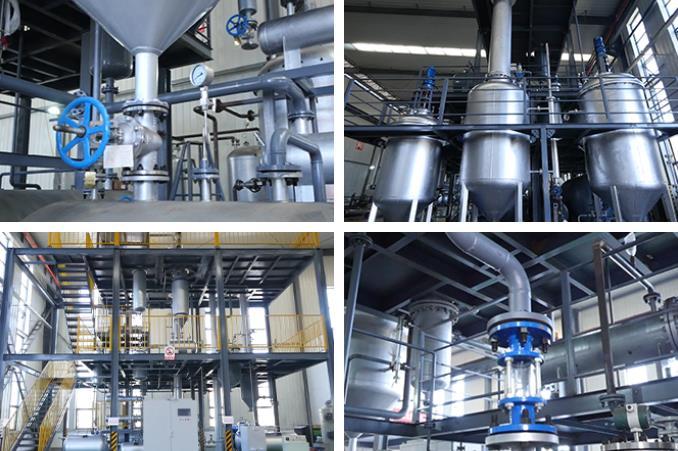Revolutionizing Sustainability: The Role of Lubricant Oil Recycling Machines

In the pursuit of a more sustainable future, the focus on recycling extends beyond traditional materials to include critical components of industrial machinery, such as lubricant oils. This article explores the importance of lubricant oil recycling and the pivotal role played by advanced machines in transforming used lubricant oil into a valuable resource.
The Environmental Imperative
Used lubricant oil poses a significant environmental challenge due to its potential for contamination and harmful impact if not disposed of responsibly. Recognizing the ecological imperative, the industry has embraced lubricant oil recycling as a viable solution to reduce waste, conserve resources, and minimize environmental pollution.
The Lubricant Oil Recycling Process
Lubricant oil recycling involves a sophisticated process that goes beyond mere collection. The integration of specialized machines enhances the efficiency and effectiveness of the recycling journey.
Collection and Pre-Treatment
Collection of used lubricant oil from various sources is the initial step.
Lubricant oil recycling machines come into play during pre-treatment, where impurities such as contaminants and sludge are removed.
Distillation and Separation
Advanced machines utilizedistillation processes to separate base oils from contaminants based on their boiling points.
This separation is a crucial step in ensuring the purity and quality of the recycled lubricant oil.
Filtration and Purification
Lubricant oil recycling machines employ advanced filtration techniques to remove remaining impurities, resulting in a clean and refined product.
Purification processes enhance the quality of the recycled oil, making it suitable for reuse in various applications.
Re-Refining
Re-refining machines play a key role in transforming the purified oil into high-quality base oils, ready to be used in the production of new lubricants.
Benefits of Lubricant Oil Recycling Machines:
Resource Conservation
The use of recycling machines significantly reduces the need for new oil production, conserving natural resources and energy.
Environmental Protection
By preventing the improper disposal of used lubricant oil, recycling machines contribute to safeguarding ecosystems and preventing soil and water contamination.
Economic Advantages
The implementation of lubricant oil recycling machines opens avenues for economic growth by creating jobs, fostering technological advancements, and supporting a circular economy.
Energy Efficiency
Recycling machines are designed for energy-efficient processes, contributing to overall sustainability by reducing the carbon footprint associated with traditional oil refining.
Conclusion
Lubricant oil recycling machines represent a technological leap towards a more sustainable and responsible approach to industrial lubrication. As the world acknowledges the importance of circular economies, these machines stand at the forefront, turning used lubricant oil from a potential hazard into a valuable resource. The collaboration between cutting-edge technology and environmental stewardship marks a promising future for industries committed to minimizing their impact on the planet.
- Art
- Causes
- Crafts
- Dance
- Drinks
- Film
- Fitness
- Food
- Jeux
- Gardening
- Health
- Domicile
- Literature
- Music
- Networking
- Autre
- Party
- Religion
- Shopping
- Sports
- Theater
- Wellness


